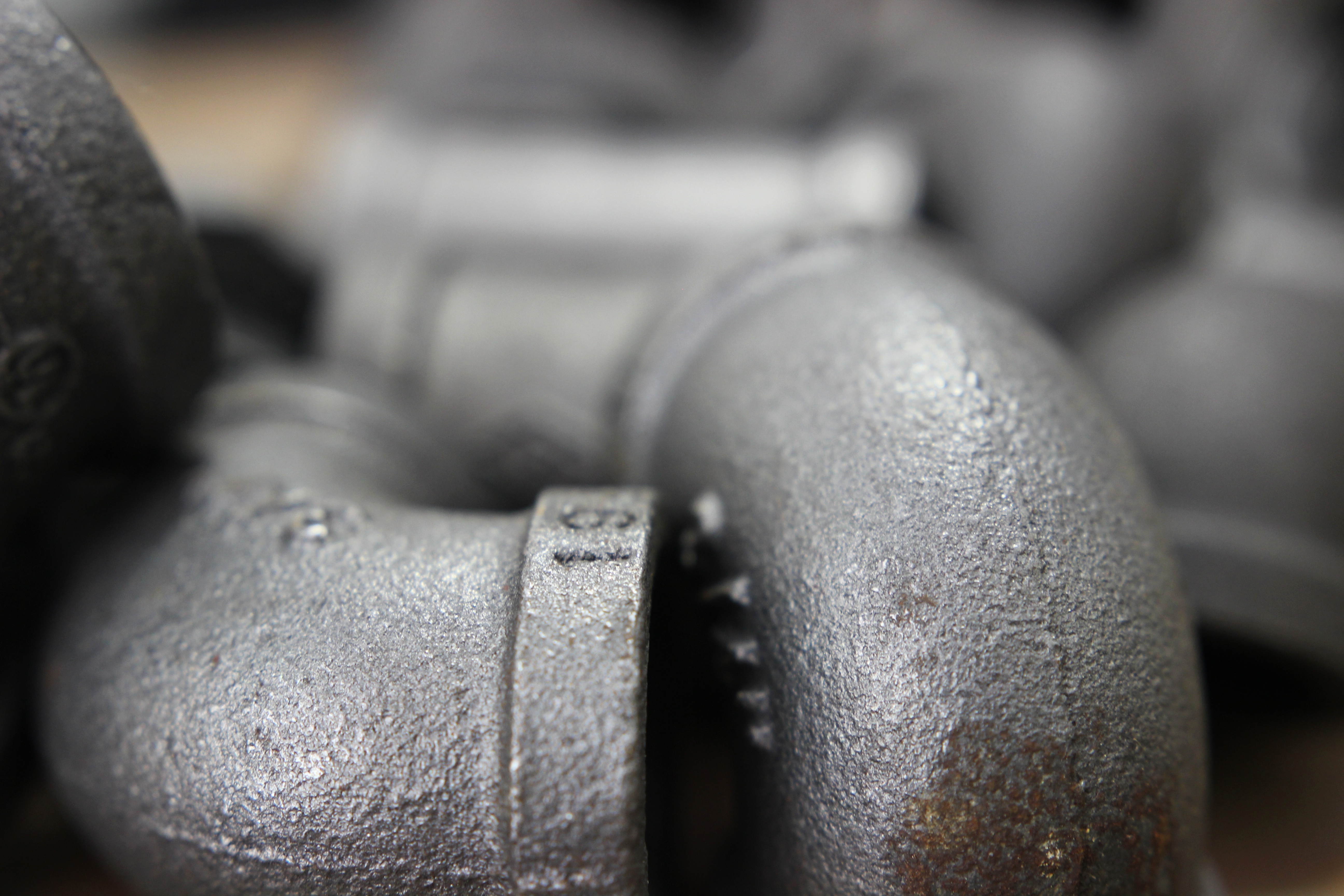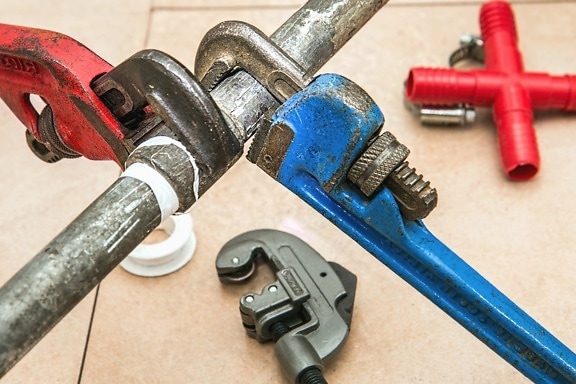Understanding the Roles of Plumbers and Electricians
Overview of Plumbing Profession – Responsibilities, skills, and typical work environments
Stepping into the world of skilled trades reveals an intriguing contrast between the roles of plumbers and electricians. These professions are the backbone of any thriving community, each demanding a unique blend of skills, precision, and resilience. In South Africa, the debate of plumber vs electrician salary often hinges on the specialized nature of their work and the environments they thrive in.
Plumbers are the unsung heroes behind our daily comfort, expertly navigating intricate pipe systems, water heaters, and sanitation networks. Their responsibilities extend beyond basic repairs to complex installations, often in challenging settings such as construction sites or residential developments. Meanwhile, electricians wield their mastery over electrical systems, ensuring safety and efficiency in everything from household wiring to large-scale industrial projects. Their skills encompass wiring, circuit design, and troubleshooting, often in high-stakes environments that demand keen attention to detail.
In the ongoing plumber vs electrician salary comparison, it’s noteworthy that both trades can command impressive wages, especially as experience and specialization grow. The key difference lies in the scope of work and the environments—electricians often find themselves in more technically demanding roles, which can influence earning potential. Whether you’re drawn to the art of water flow management or the electrifying world of circuitry, understanding these roles provides clarity in choosing a path that aligns with your ambitions and financial aspirations.
Overview of Electrical Profession – Responsibilities, skills, and typical work environments
Electricians play a pivotal role in ensuring our homes and industries operate safely and efficiently. Their responsibilities extend beyond simple wiring to complex circuit design, system troubleshooting, and maintenance. These tasks often require specialized skills and a thorough understanding of electrical codes and safety standards.
Typically, electricians work in high-stakes environments such as construction sites, industrial plants, or residential projects. Their work environment demands precision and quick thinking, especially when dealing with live electrical systems. The plumber vs electrician salary comparison often highlights that electricians tend to earn more, particularly as they gain experience and certifications.
In South Africa, the scope of an electrician’s work and the technical demands involved generally influence earning potential. For those considering a career in this field, understanding the distinct responsibilities and work environments sheds light on why electricians might command a higher salary in the plumber vs electrician salary debate.
Key Differences Between Plumbers and Electricians – Scope of work, training requirements, and specialties
Understanding the distinct roles of plumbers and electricians reveals why their salaries vary so dramatically. Electricians often command higher pay, thanks to the complexity and technical demands of their work. Their scope extends beyond simple wiring to include intricate circuit design, system troubleshooting, and compliance with strict electrical codes. This specialization requires extensive training and certifications, making their skills highly valuable in the job market.
Meanwhile, plumbers focus on the installation and maintenance of water, sewage, and drainage systems. Their work environment is typically more physical and hands-on, often in residential or commercial settings. Despite this, the plumber vs electrician salary comparison often favors electricians, especially as they accumulate experience and advanced qualifications. The technical mastery needed for electrical work naturally translates into higher earning potential, a fact that stands out in South Africa’s competitive trades landscape.
Within these professions, the scope of work and required expertise create a clear salary hierarchy. Electricians, with their specialized knowledge, are more likely to earn a premium for their skills. For those pondering a career in trades, it’s crucial to recognize that the difference in earning potential isn’t just about the work itself but also the level of expertise and certification involved.
Average Salary Statistics for Plumbers and Electricians
National Average Salaries – Comparative data based on recent surveys and sources
When it comes to earning potential, the plumber vs electrician salary debate is quite the intriguing tug-of-war. According to recent surveys, the national average salary for plumbers hovers around R180,000 to R250,000 per year, showcasing their vital role in keeping our homes and businesses leak-free. Meanwhile, electricians tend to pull in slightly more, with averages ranging from R200,000 to R280,000 annually, reflecting the complex nature of their craft and the high stakes of electrical safety. It’s fascinating how these trades, often considered similar in prestige, can differ in earning capacity due to specialization and demand.
For those contemplating a career in either field, understanding the salary landscape is crucial. The plumber vs electrician salary figures are influenced by factors like experience, geographic location, and whether one is self-employed or working for a company. Interestingly, in some regions of South Africa, electricians have an edge, thanks to ongoing infrastructure projects, while plumbers enjoy steady demand in residential renovations. Ultimately, both professions offer lucrative opportunities, but the choice often boils down to personal interest and skillset rather than just financial reward.
Regional Salary Variations – How location impacts earning potential
Location is everything—well, at least when it comes to the plumber vs electrician salary debate in South Africa. In bustling urban hubs like Johannesburg and Cape Town, electricians often enjoy a financial edge, thanks to ongoing infrastructure projects and a booming construction scene. Conversely, in more residential areas or smaller towns, plumbers tend to see consistent demand, which keeps their earnings stable and sometimes even on the rise.
Regional salary variations can be quite stark. For instance, in Gauteng, electricians might earn between R220,000 and R280,000 per year, while plumbers hover around R180,000 to R250,000. Meanwhile, in less industrialized regions, these figures can shift dramatically, sometimes favoring plumbers due to higher residential renovation activity. To better grasp these differences, consider the following factors which influence the plumber vs electrician salary in different parts of South Africa:
- Cost of living and regional economic activity
- Availability of skilled tradespeople and local demand
- Number of infrastructure projects and construction developments
Ultimately, location plays a pivotal role in shaping earning potential. Whether you’re leaning towards the plumber vs electrician salary, understanding regional nuances can make all the difference in choosing the right trade and the right place to thrive.
Entry-Level vs Experienced Salaries – Salary progression over time
When it comes to the plumber vs electrician salary debate, understanding the average earnings can feel like deciphering a complex puzzle. In South Africa, entry-level plumbers typically start around R80,000 to R120,000 annually, depending on the region and demand. Electricians, on the other hand, often kick off their careers earning between R100,000 and R140,000. But here’s where it gets interesting: with experience, these figures can climb significantly.
For seasoned professionals, electricians often reach the R300,000 to R400,000 mark, especially if they specialize in high-demand areas like industrial wiring or renewable energy systems. Plumbers, while slightly trailing in initial wages, can also see their salaries soar into the R250,000 to R350,000 range after years of honing their craft. The key difference? Electricians tend to experience a steeper salary progression over time, thanks to the specialized nature of their work and ongoing technological advancements.
- Entry-level salaries provide a solid foundation, but experience and specialization are the real game-changers.
- Electricians often enjoy faster salary progression, especially when they acquire niche skills or certifications.
- Plumbers may have more stable earnings early on, with consistent demand in residential and commercial sectors.
In essence, whether you’re eyeing the plumber vs electrician salary, understanding how experience influences earning potential can help you navigate the trade’s financial landscape with confidence—and maybe a bit of humor, too!

Factors Influencing Plumber and Electrician Salaries
Education and Certification – Licensing, certifications, and ongoing training
In the shadowed corridors of skilled trades, education and certification serve as the gateways to financial ascent. For both plumbers and electricians, the journey begins with a rigorous apprenticeship—an odyssey of hands-on mastery and darkened classroom halls. These certifications are more than mere paper; they are the keys to unlocking higher plumber vs electrician salary potential in South Africa’s evolving landscape.
Ongoing training acts as an alchemical process, transforming raw talent into refined expertise. Electricians often pursue specialized courses in high-voltage systems or renewable energy, while plumbers may delve into advanced piping technology or water conservation methods. Such pursuits can dramatically influence salary scales, carving out pathways to earn more in this competitive realm. In the end, it’s not just about what you know, but how deeply you immerse yourself in the craft that determines whether a plumber vs electrician salary will ascend to the heights you desire.
Work Experience – Impact on earning potential
When it comes to work experience, the difference between a rookie and a seasoned pro can be astronomical—think of it as the difference between a dribble and a slam dunk. For plumbers and electricians, years in the field don’t just sharpen skills; they significantly impact earning potential. A novice might start with a modest plumber vs electrician salary, but as expertise accumulates, so do the dollars.
In South Africa, experienced plumbers and electricians who have honed their craft often command premium rates. The secret sauce? Practical knowledge paired with a reputation for reliability. For instance, an electrician with five or more years under their tool belt can often negotiate a higher salary, especially if they’ve specialized in high-demand areas like renewable energy or smart home systems. The same holds true for plumbers, whose proficiency in advanced piping tech and water conservation strategies opens doors to lucrative projects.
Here’s a quick snapshot of how work experience can influence earnings:
- Entry-level positions typically offer a starting plumber vs electrician salary that’s competitive but modest.
- Mid-career professionals with a decade or more in the field often see their salaries double, thanks to refined expertise and reputation.
- Veterans with specialized skills or management roles can push their earning potential even higher, carving out a distinct gap in the plumber vs electrician salary landscape.
So, whether you’re wielding a wrench or a voltmeter, remember: experience isn’t just a number—it’s your most valuable asset in the quest for a hefty salary in South Africa’s bustling trade markets.
Specializations and niches – High-demand specialties and their compensation
In the intricate dance of trade crafts, specialization often determines the tempo of one’s earning potential. High-demand niches within plumbing and electrical fields serve as the golden threads woven into the fabric of lucrative careers. For instance, electricians who master renewable energy systems or smart home automation often find themselves commanding premium rates. Similarly, plumbers skilled in water conservation technologies or advanced piping systems open doors to exclusive, high-paying projects.
These niche skills are the secret sauce in the plumber vs electrician salary debate, elevating earnings well beyond the standard. The market in South Africa pulses with opportunity for those who carve out expertise in areas like solar installation or eco-friendly water solutions. Such specialization not only boosts income but also cements a professional reputation for mastery and reliability.
Here’s a glimpse into the lucrative niches within these trades:
- Renewable energy installations
- Smart home wiring
- Water conservation systems
- High-tech piping and drainage
In the vibrant landscape of South Africa’s trade markets, those who focus on these specialized domains often find their plumber vs electrician salary soaring, illustrating that in mastery, wealth quietly but surely follows.
Geographical Location – Urban vs rural earnings
The geography of opportunity often shapes the earning landscape for plumbers and electricians in South Africa. Urban centers like Johannesburg, Cape Town, and Durban pulsate with demand, where the hustle of construction, infrastructure upgrades, and commercial projects drive salaries skyward. In these bustling metropolises, experienced professionals can command premium rates, especially those with niche expertise. Conversely, rural areas tend to offer more modest compensation, yet the potential for steady, localized work remains attractive for many skilled tradespeople.
In fact, the disparity between urban and rural earnings significantly influences the overall plumber vs electrician salary debate. Urban environments often present a vibrant tapestry of high-paying projects, while rural regions might require adaptability and resourcefulness. For those willing to navigate these contrasting worlds, the rewards can be substantial. Here’s a quick rundown:
- Urban areas: higher salaries, diverse projects, competitive rates
- Rural regions: steadier work, lower pay, growing demand for essential services
Ultimately, understanding how geographical location impacts earning potential helps tradespeople tailor their careers, whether seeking the high-value niches in cities or building a reputation in less crowded territories. The plumber vs electrician salary comparison becomes even more compelling when factoring in the dynamic South African market’s regional nuances.
Industry Sector – Residential, commercial, industrial sectors
In the shadowy corridors of South Africa’s skilled trades, the disparity between plumber vs electrician salary often hinges on the industry sector they serve. Residential work, with its intimate focus on homes and private sanctuaries, tends to offer modest yet steady compensation. Meanwhile, the commercial and industrial sectors pulse with higher stakes and greater financial rewards. Electricians working on sprawling factories or high-rise apartments can command premium rates, especially when their skills address complex, high-voltage systems. Similarly, plumbers tackling large-scale infrastructure projects or specialized installations find their expertise highly valued.
For those seeking an edge in the plumber vs electrician salary debate, specialization becomes a key. High-demand niches such as renewable energy systems, smart home integrations, or sophisticated industrial piping often come with lucrative paychecks. It is within these shadowy realms of expertise that the true power of earning potential resides—where skills are scarce, and the stakes are high. As the industry evolves, the ability to adapt to these specialized sectors can transform a humble tradesperson into a commanding figure in the shadowed markets of South Africa’s construction and maintenance landscape.
Job Outlook and Salary Trends
Projected Growth for Plumbers – Future job demand and salary prospects
As South Africa continues to urbanize and modernize, the demand for skilled tradespeople like plumbers and electricians remains robust. The future job outlook for plumbers is promising, with an anticipated growth rate driven by infrastructure upgrades and increased new development projects. According to recent labor market surveys, the plumber vs electrician salary comparison reveals that both professions are poised for upward trajectory, especially for those who specialize or gain extensive experience.

Salary trends indicate that experienced plumbers can command higher wages, particularly in metropolitan areas where urban infrastructure projects are booming. Meanwhile, electricians, especially those with niche skills in renewable energy or smart home systems, are seeing a similar rise in earning potential. The projected growth for both trades suggests a resilient job market, with opportunities expanding across residential, commercial, and industrial sectors. Overall, the future of plumber vs electrician salary prospects appears bright, promising stability and lucrative earnings for dedicated professionals willing to adapt to evolving industry needs.
Projected Growth for Electricians – Future job demand and salary prospects
The future of electrician salaries in South Africa looks promising, driven by increasing demand for skilled professionals in emerging sectors like renewable energy and smart technology. As urban infrastructure expands and modernizes, electricians who specialize in niche areas can expect steadily rising wages. This trend is supported by recent labor market surveys showing a consistent upward trajectory in earnings for experienced electricians.
Job outlook remains strong, especially in metropolitan areas where commercial and industrial projects are booming. For those with advanced certifications or expertise in high-demand niches, the earning potential can be significantly higher. Interestingly, the comparison of plumber vs electrician salary highlights that both trades are benefiting from similar growth patterns, especially for seasoned professionals. In fact, electricians with specialized skills can command premium wages, and their job security is bolstered by ongoing infrastructure developments across South Africa.
Overall, the projected growth for electricians indicates a resilient job market, with opportunities that span residential, commercial, and industrial sectors. Whether working on new building projects or upgrades to existing systems, electricians are well-positioned for future salary increases. As the demand for their skills continues to rise, the plumber vs electrician salary comparison underscores the lucrative prospects available to those willing to adapt and grow within this vital trade.
Impact of Technology and Innovation – Automation, smart home wiring, and their effects on pay
The rapid march of technology is reshaping how plumbers and electricians approach their craft—and, unsurprisingly, their paychecks. In South Africa, the integration of automation, smart home wiring, and energy-efficient systems is opening new avenues for skilled tradespeople. Electricians who adapt to these innovations are often rewarded with higher salaries, thanks to their expertise in cutting-edge systems such as solar energy and home automation.
Meanwhile, the plumber vs electrician salary comparison continues to evolve as both trades embrace technological advancements. For electricians, mastering smart wiring and automation systems can mean commanding premium wages, especially in urban hubs where such projects are booming. Conversely, plumbers specializing in eco-friendly water management and modern sanitation solutions are also seeing their earning potential rise.
In fact, embracing innovation is no longer optional but essential for growth. The impact of technology on pay for these trades ensures that seasoned professionals with niche skills remain highly sought after. This trend underscores a future where the plumber vs electrician salary will largely depend on their ability to stay ahead of technological trends, making adaptability the key to financial success in South Africa’s dynamic job market.

Additional Compensation and Benefits
Overtime and Bonus Opportunities – How extra hours affect income
Overtime and bonus opportunities can significantly influence the overall income of plumbers and electricians in South Africa. For both professions, working beyond standard hours often results in higher pay, serving as a vital supplement to base salaries. Many firms incentivize overtime, recognizing that urgent repairs or installation projects may demand extra hours.
For plumbers, overtime can sometimes double their hourly rate, especially during peak seasons or emergency call-outs. Electricians, meanwhile, frequently earn extra through night shifts or weekend work, which is common in industrial sectors or infrastructure projects.
- Overtime pay rates
- Performance bonuses
- On-call allowances
These additional compensation avenues can make a noticeable difference when comparing the plumber vs electrician salary. It’s not just about the regular paycheck; the potential for bonuses and overtime earnings often shapes the decision for professionals choosing between these trades. As demand for skilled tradespeople remains high, such opportunities become even more crucial in determining earning potential.
Benefits and Perks – Insurance, retirement plans, paid leave
Beyond the base salary, additional compensation and benefits play a vital role in shaping the overall earning potential of plumbers and electricians in South Africa. Many firms recognize the importance of retaining skilled tradespeople by offering perks such as insurance coverage, retirement plans, and paid leave. These benefits not only provide financial security but also foster peace of mind amid the often unpredictable nature of these professions.
For those in the plumber vs electrician salary debate, such perks can tip the scales. An electrician might enjoy on-call allowances that compensate for irregular hours, while a plumber could benefit from comprehensive health insurance that covers emergency repairs and routine check-ups. These extras make a tangible difference, especially when combined with overtime and bonus opportunities, creating a more holistic compensation package.
In some cases, workers may also access training subsidies or industry-specific perks that enhance their skills and marketability. Such benefits underscore the value placed on these trades, encouraging long-term careers filled with growth and stability. Ultimately, these added advantages enrich the financial landscape of plumbing and electrical work, making the comparison between plumber vs electrician salary more nuanced than just hourly rates or annual pay.
Self-Employment vs Employment – Differences in income potential
When comparing the income potential of plumbers and electricians, understanding the scope of additional compensation and benefits is crucial. Self-employment introduces a different dynamic compared to traditional employment, significantly impacting earning prospects. While employed plumbers and electricians often enjoy structured benefits such as health insurance, retirement plans, and paid leave, self-employed tradespeople must manage these costs independently.
For instance, a self-employed electrician might negotiate higher project rates to cover on-call allowances and unforeseen expenses, whereas a plumber might focus on expanding their client base to increase revenue. The flexibility of self-employment can lead to higher income peaks but also entails greater financial risk.
- Higher earning potential through project-based work
- Greater control over work hours and rates
- Additional expenses for insurance, tools, and training
Ultimately, the choice between employment and self-employment shapes the landscape of the plumber vs electrician salary debate, weaving a complex tapestry of stability, growth, and entrepreneurial spirit.”
Pros and Cons of Careers in Plumbing and Electrical Work
Advantages of Being a Plumber – Job stability, entrepreneurship opportunities
When weighing the decision between a career as a plumber or an electrician, understanding the pros and cons can significantly influence your choice. One compelling advantage of being a plumber is job stability. Plumbing is essential infrastructure—homes, businesses, and industries all depend on reliable water and waste systems, ensuring consistent demand for skilled plumbers. Additionally, plumbing offers entrepreneurship opportunities, allowing experienced professionals to start their own businesses and control their income potential. This route can lead to increased earnings and flexibility that many find appealing.
On the other hand, the electrician’s profession boasts its own set of benefits. Electricians often enjoy higher initial salaries, especially in regions with a high cost of living or booming construction sectors. The specialized nature of electrical work, particularly in emerging fields like smart home wiring and renewable energy systems, can lead to lucrative niches. Nevertheless, the debate of plumber vs electrician salary remains nuanced. While electricians may command higher wages early on, seasoned plumbers with a strong reputation and niche expertise can also achieve impressive earnings. Ultimately, both careers present viable paths with unique advantages that cater to different professional aspirations and lifestyle preferences.
Disadvantages of Being a Plumber – Physical demands, startup costs
Choosing between a career in plumbing or electrical work often hinges on understanding not just the work itself, but also the earning potential. While many focus on the lucrative aspects, it’s important to recognize the challenges as well. For plumbers, one notable disadvantage is the physical demands of the job. Tasks often involve heavy lifting, working in confined spaces, and standing for long periods—factors that can take a toll on the body over time. Additionally, startup costs for plumbing businesses can be substantial, requiring investment in tools, vehicles, and licensing before turning a profit.
In contrast, electricians face their own set of hurdles. The specialized nature of electrical work means extensive training and certification are necessary, often involving costly courses and ongoing education. Moreover, while the plumber vs electrician salary debate tends to favor electricians in the early stages—thanks to higher initial wages—the earning potential for experienced plumbers with niche expertise can be just as impressive. Both careers demand resilience and dedication, but understanding their respective disadvantages helps in making a well-informed decision about which path aligns with your goals and lifestyle.
Advantages of Being an Electrician – High demand, versatile roles
Electricians enjoy a distinct advantage in the early stages of their careers, thanks to higher initial wages that often surpass those of plumbers. This can be attributed to the specialized training and certification required for electrical work, which tends to command a premium from employers. One of the key benefits of choosing a career in electrical work is its high demand across various sectors, including residential, commercial, and industrial. The versatility of roles available—ranging from wiring smart homes to maintaining complex electrical systems—ensures a steady flow of opportunities. Electrician salary figures reflect this robust demand, often leading to lucrative earning potential as experience accumulates.
Moreover, the growth of technology and automation has opened new avenues for electricians, making their skills increasingly valuable in a rapidly evolving industry. The ability to adapt to innovations like smart home wiring and energy-efficient systems means electricians can command higher wages and specialized bonuses. While the plumber vs electrician salary debate often leans toward electricians in the early years, seasoned plumbers with niche expertise can also reach impressive income levels. The flexibility and resilience required for electrical careers make them a compelling choice for those seeking stability combined with growth potential.
Disadvantages of Being an Electrician – Licensing hurdles, safety risks
Embarking on a career in electrical work or plumbing is akin to stepping into a shadowed realm where skill and perseverance are your only shields against the lurking uncertainties of the trade. While electricians often command higher initial wages, the path is riddled with licensing hurdles and safety risks that can temper even the most determined spirit. The journey to becoming a licensed electrician demands rigorous training, exams, and a steadfast commitment to ongoing education, making the plumber vs electrician salary debate even more complex. The danger is real—electricians face the threat of electric shocks, arc flashes, and other hazards that lurk behind every wire and circuit. Such risks are not to be taken lightly, and they often reflect in the premium wages earned in this darkly alluring profession.
For those contemplating the trade, understanding these disadvantages is crucial. Electricians must navigate a labyrinth of licensing requirements, which can sometimes feel like an insurmountable barrier, especially in regions with strict regulations. Yet, despite these perils and hurdles, the allure of higher earning potential persists, whispering promises of wealth to those willing to brave the shadows. The gap between plumber vs electrician salary is often a reflection of these risks—electricians are paid a premium for their specialized skills and the perilous nature of their work. Nonetheless, it’s essential to recognize that the path is not without its toll—safety concerns and licensing struggles cast their long, dark shadow over the luminous promise of lucrative earnings.




0 Comments